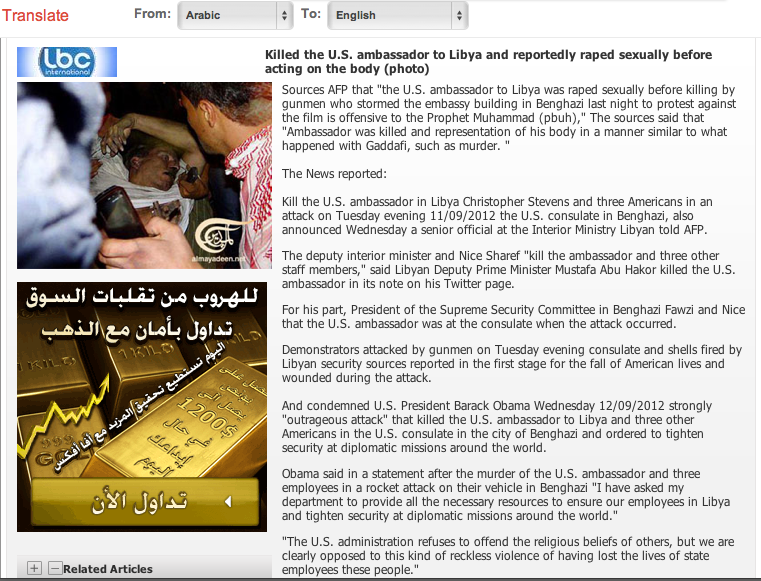BINTULU, Sept 16 (Bernama) -- Certain states are lagging behind other
states as they are not working in tandem with the federal government,
said Prime Minister Datuk Seri Najib Tun Razak.
The prime minister said the leaders of these states placed politics uppermost in their minds rather than the prosperity of the people.
He said good working relationship and understanding with the federal government were the hallmark of Sabah and Sarawak's significant progress since gaining independence through the establishment of Malaysia 49 years ago.
The decision made by leaders of yesteryears in both states to join 11 other states in the Malay Peninsular to form Malaysia on Sept 16, 1963 became the foundation today's success, he said at the Malaysia Day celebration at the old Bintulu airport site here Sunday night.
"I think none of the people of Sarawak and Sabah today will say they have made a big mistake by joining Malaysia," he said.
Najib said since the successful establishment of Malaysia, the people of the three regions had fought together to defend the country's sovereignty.
"There were people from Peninsular Malaysia who had shed blood to defend Sabah and Sarawak and not least the people from Sabah and Sarawak who died in defending Peninsular Malaysia," he said.
He said the nation's leaders in the early stages of independence had successfully kept their promises to ensure that Malaysia would persevere and remain sovereign, followed by post-independence leaders who fulfilled their promises to bring development to every nook and corner of the country.
"As for today's leaders, our promise is that by the dawn of 2020, Malaysia will be declared a developed nation," he said.
Meanwhile, Sarawak Chief Minister Tan Sri Abdul Taib Mahmud said the state was unable to achieve independence on its own in 1960s due to the political and security situation in the region then.
Taib said the plan on the formation of Malaysia was conveyed to him by the late Tunku Abdul Rahman (first prime minister), who did not want the people of Sabah and Sarawak to continue to be under the clutches of the colonial government.
"We also wanted progress as we do not want to continue to be left behind, and it was only by joining Malaysia we can change the fate of our people," he said.
The prime minister said the leaders of these states placed politics uppermost in their minds rather than the prosperity of the people.
He said good working relationship and understanding with the federal government were the hallmark of Sabah and Sarawak's significant progress since gaining independence through the establishment of Malaysia 49 years ago.
The decision made by leaders of yesteryears in both states to join 11 other states in the Malay Peninsular to form Malaysia on Sept 16, 1963 became the foundation today's success, he said at the Malaysia Day celebration at the old Bintulu airport site here Sunday night.
"I think none of the people of Sarawak and Sabah today will say they have made a big mistake by joining Malaysia," he said.
Najib said since the successful establishment of Malaysia, the people of the three regions had fought together to defend the country's sovereignty.
"There were people from Peninsular Malaysia who had shed blood to defend Sabah and Sarawak and not least the people from Sabah and Sarawak who died in defending Peninsular Malaysia," he said.
He said the nation's leaders in the early stages of independence had successfully kept their promises to ensure that Malaysia would persevere and remain sovereign, followed by post-independence leaders who fulfilled their promises to bring development to every nook and corner of the country.
"As for today's leaders, our promise is that by the dawn of 2020, Malaysia will be declared a developed nation," he said.
Meanwhile, Sarawak Chief Minister Tan Sri Abdul Taib Mahmud said the state was unable to achieve independence on its own in 1960s due to the political and security situation in the region then.
Taib said the plan on the formation of Malaysia was conveyed to him by the late Tunku Abdul Rahman (first prime minister), who did not want the people of Sabah and Sarawak to continue to be under the clutches of the colonial government.
"We also wanted progress as we do not want to continue to be left behind, and it was only by joining Malaysia we can change the fate of our people," he said.





 The human rights NG0's state-based coordinator Lee Hui Fei (left) said the problem may be so rampant that it becomes a "norm" in the country.
The human rights NG0's state-based coordinator Lee Hui Fei (left) said the problem may be so rampant that it becomes a "norm" in the country. She was speaking during a session in Komtar where the family of Cheah Chin Lee, who
She was speaking during a session in Komtar where the family of Cheah Chin Lee, who  "There
is also a need to find out if there was any human rights abuse," she
said. "We must find ways to ensure the security of detainees so that
there will be no more mysterious deaths in the police lock-up."
"There
is also a need to find out if there was any human rights abuse," she
said. "We must find ways to ensure the security of detainees so that
there will be no more mysterious deaths in the police lock-up."



 KUALA LUMPUR, Sept 13 — Putrajaya has endorsed a list of identifiable gay and lesbian traits to schools and parents to prevent the spread of the phenomenon among teenagers, especially students, according to media reports.
KUALA LUMPUR, Sept 13 — Putrajaya has endorsed a list of identifiable gay and lesbian traits to schools and parents to prevent the spread of the phenomenon among teenagers, especially students, according to media reports.




